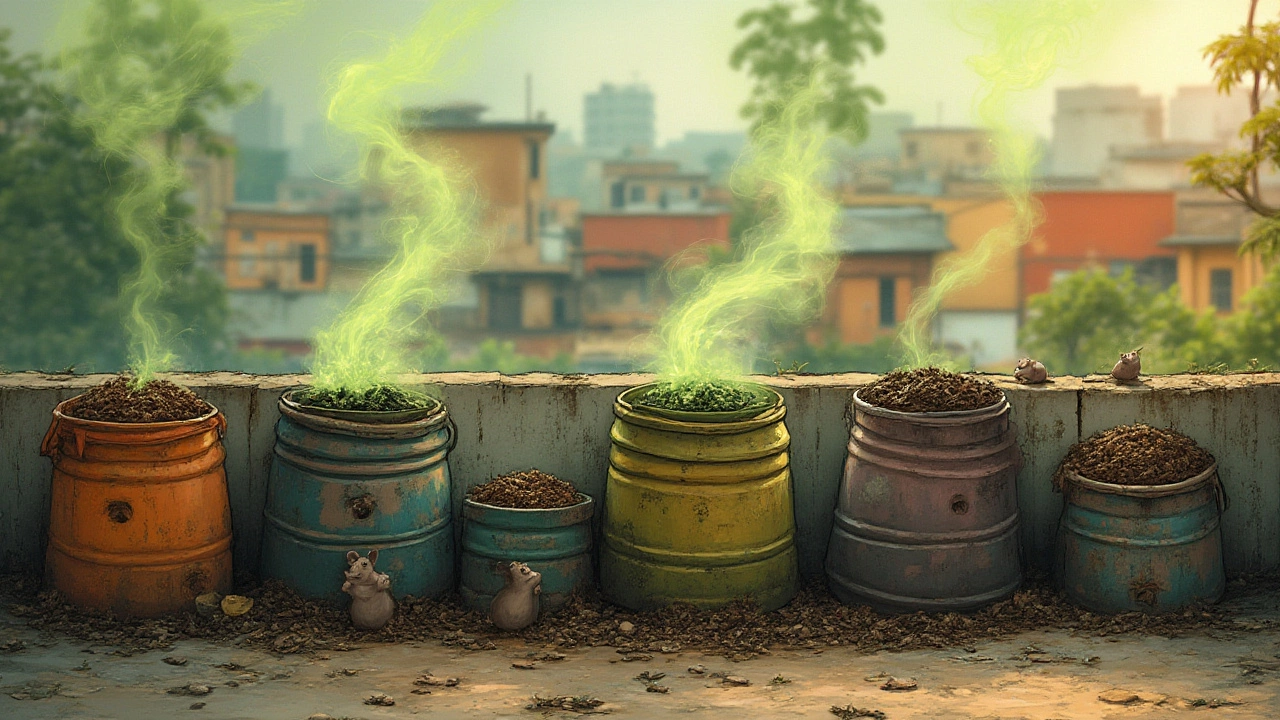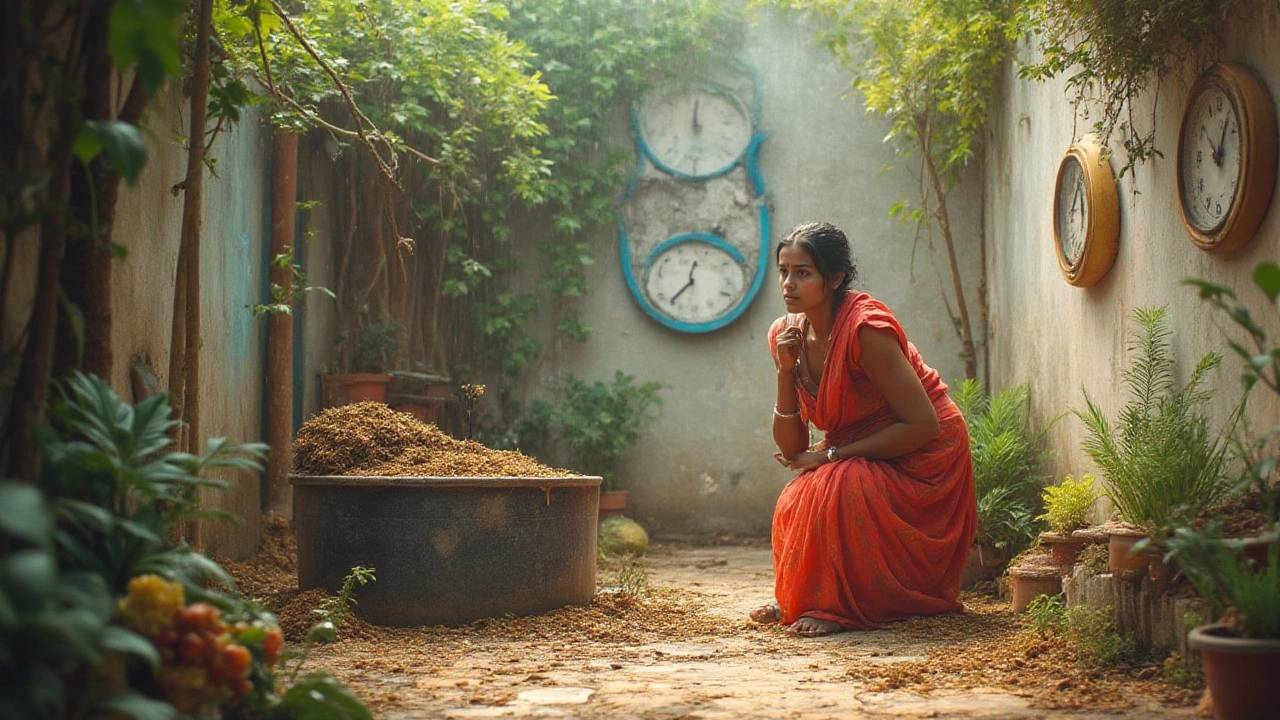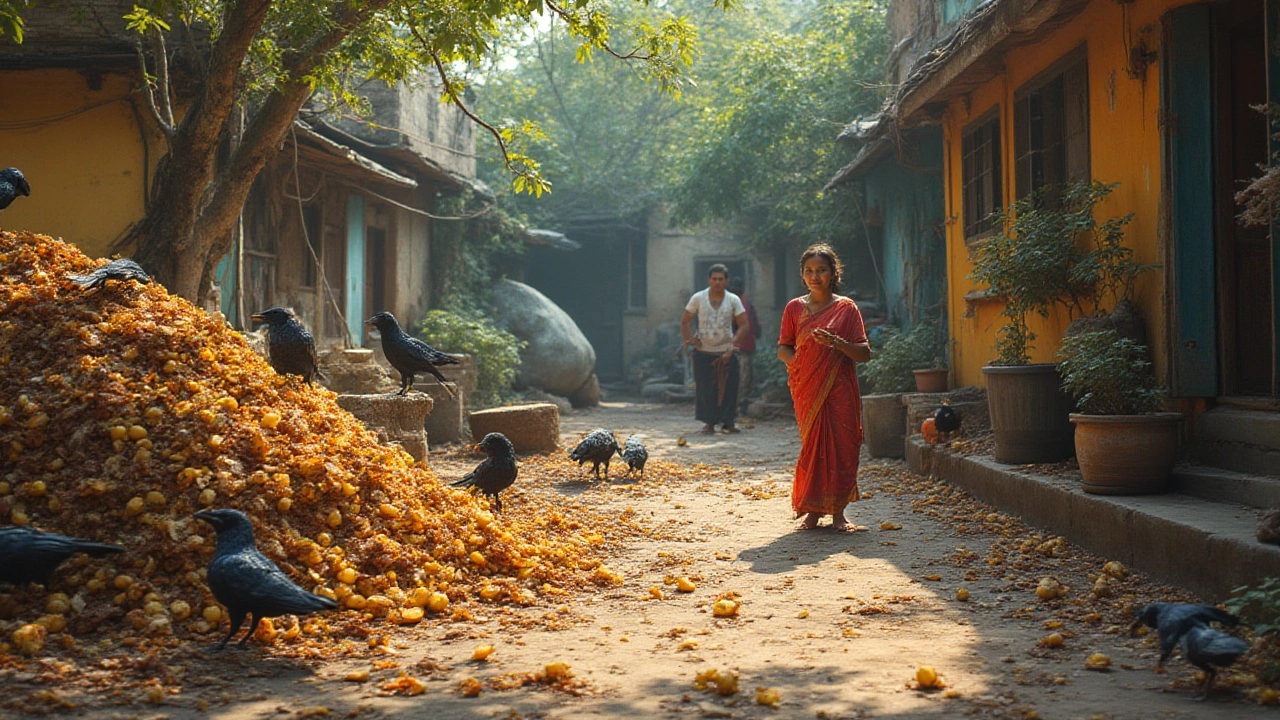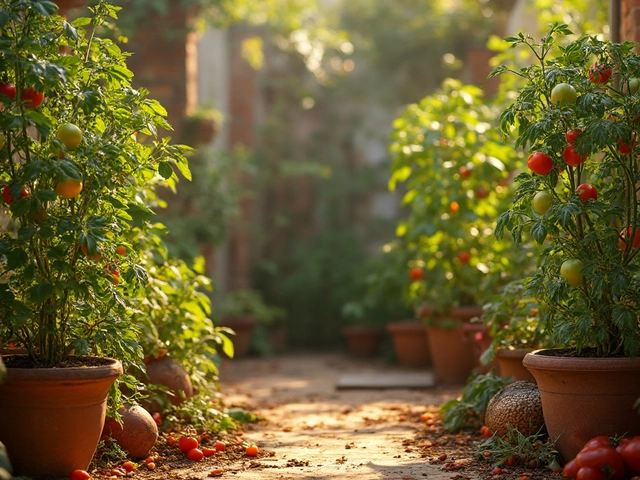Picture it: You feel awesome for deciding to compost your kitchen scraps, thinking this green magic will turn garbage into gold for your garden. But then, your backyard begins to smell like sulphuric eggs, fruit flies cluster in the air, and you’re unsure if you’re nurturing plants or a raccoon nightclub. Composting sounds like the ultimate eco-friendly move, but it’s less sparkly in real life than all those TikTok clips make it out to be. Let’s unpack why something that should be so simple comes with plenty of complications you don’t hear about, especially if you’re new to the game.
Composting Takes Time, Patience, and a Lot of Work
If you think tossing scraps in a pile yields black, crumbly compost in a few weeks, brace yourself for a reality check. Compost can take anywhere from three months to over a year to fully decompose, especially if you don’t turn the pile or keep ratios balanced. Add too many leaves, it dries out. Add too many food scraps, it gets soggy or slimy. You need the right mix of carbon (think dry leaves, shredded paper) and nitrogen (food scraps, coffee grounds)—some experts even talk about the perfect C:N ratio of 30:1. Who’s measuring this out in everyday life? Not most people. Miss the magic ratio, and you just have a mound of half-rotted trash.
If you’ve ever traveled or just forgot to turn your pile for a couple weeks, you know the pain. Air doesn’t circulate, anaerobic bacteria thrive, and suddenly your compost is more stink bomb than soil booster. Unless you’re using a fancy tumbler or you actually enjoy grabbing a pitchfork every Saturday, you’re looking at back-breaking labor. Oh, and watch out for that one neighbor who reports you after smelling your pile in August—municipalities in the US hand out fines for improper composting more often than you’d guess.
Compost Attracts Pests, Insects, and Unwanted Critters
Fact: Compost piles are like five-star buffets for rodents and raccoons. Fresh fruit peels, bread crusts, and veggie scraps are basically a dream menu, especially if you live in suburbia or near woodsy areas. Even closed bins attract ants, wasps, flies, and, yes, maggots. Some folks accidentally breed soldier flies (Hermetia illucens) by the hundreds. Is it harmful? Not at all—they actually speed up decomposition. But most people aren’t thrilled to open a compost bin and discover what looks like a horror movie in larva form.
The USDA once reported that a badly maintained compost pile can quadruple your risk of a rodent problem. Throw in cooked food, meat, dairy, or oils, and the chances skyrocket. If you’re not up for rodent-proofing and weekly checks, the smell and scattered scraps won’t just annoy you—they’ll bring raccoons, feral cats, or even coyotes. For some city folks, the temptation to dump everything in an old plastic bin brings cockroaches—a real no-go in apartment buildings. So yeah, unless you want to fight the local wildlife, you’ll need barriers, latching lids, or even metal mesh for open piles.

Smells and Managing Moisture: No One Talks About the Bad Odors
This is a dealbreaker for a lot of people. Badly managed compost can reek—even if you’ve done most things right. Too much nitrogen (think grass clippings or wet food scraps) and not enough carbon, and the pile gets soggy. Oxygen drops, anaerobic bacteria move in, and bam: you’re hit with rotten egg or even ammonia-like smells. Add in high summer humidity, and your backyard can clear the air of guests faster than a skunk at a BBQ. Out of 2,000 US respondents in a 2023 consumer survey, over 30% quit home composting after a few months—‘bad smells’ was the number one dealbreaker.
Leachate is another dark side most people don’t know. That’s just a fancy way of saying ‘compost juice’, and it forms at the bottom of the pile if things get too wet. Let this seep into your lawn and you might get dead grass, or worse—pollute a nearby well or stream. Managing moisture means adding dry material regularly and covering food scraps with leaves or shredded cardboard. Nobody tells you how much maintenance those bins take. For apartment dwellers, venting those bokashi buckets or worm bins gets tricky—especially when the summer heat hits and everything ferments in record time.
Composting Isn’t a One-Size-Fits-All Climate Solution
It sounds great as a green fix, but composting isn’t always practical or even possible. Folks living in regions with cold winters face months where the piles freeze solid—microbes can’t work in the cold, so you’re just stockpiling trash until spring. In desert or drought-prone areas, keeping the pile moist enough is a never-ending hassle. Some cities ban outdoor piles to avoid attracting wildlife or due to complaints about odor and rodents. So, plenty of people find themselves investing in commercial pick-up services, or just giving up.
People in apartments face another hurdle. Indoor composting means worm bins, bokashi systems, or countertop machines. Each comes with a learning curve, and all can go wrong. Worms die if it gets too wet or acidic. Bokashi buckets ferment, not rot, so you need a backyard spot for final decomposition. Anyone with limited space and no yard risks making a stinky mess in their tiny homes. Fun fact: Out of all households in New York City that tried indoor composting bins in 2024, only 19% stuck with it a year later, based on city waste management reports.

Hidden Environmental and Health Costs of Composting
There’s more to composting’s carbon footprint than you’d think. Home compost piles—especially if mismanaged—emit methane and nitrous oxide, two potent greenhouse gases. Commercial facilities are designed to control these emissions, but backyard piles often slip under the radar. The EPA says improperly run piles can contribute way more to emissions than simply landfilling veggie scraps. If you live in a dense urban neighborhood, hauling loads of waste to far-off community composting centers eats fuel and time—pretty much defeating the purpose for some folks.
Health-wise, compost bins can expose you to molds and allergens. Turn a pile and you might trigger asthma or allergies—especially if you let your compost rot too long. Certain bacterium, like Aspergillus fumigatus, loves decomposing organic matter and can release spores that irritate lungs. Immunocompromised people, kids, and the elderly are all at higher risk. It’s smart to wear gloves, a mask, and wash your hands after handling the pile, but honestly, how often do you see weekend gardeners masking up?
| Composting Problem | % of US Home Composters Reporting |
|---|---|
| Bad Odors | 38% |
| Pests/Rodents | 41% |
| Takes Too Long | 27% |
| Too Much Upkeep | 29% |
| Gave Up/Stopped | 34% |
So, what’s the bottom line? Composting is awesome in theory and can absolutely help the environment if done right. But for the average person? It’s a lot more complicated than most how-to guides say. Want to make it work? Invest in a sturdy, animal-proof bin. Learn the right balance of carbon and nitrogen. Don’t toss in dairy, oils, or cooked food. Give the pile a turn now and then, or use a tumbler. If you live in an apartment, try a small worm bin—just know you’ll need to check on it and keep the right bedding. And if you’re worried about time or pests, look into a curbside compost pick-up service or donate your food scraps to a local farm. Just know that even if you’re doing your best, composting isn’t a magic fix—and anyone who tells you it’s easy and problem-free is skipping the messy parts. Composting’s real, unglamorous challenges are why it’s not always the *strong* universal solution people think.





